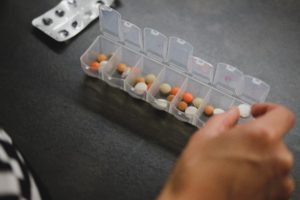The last time you popped over to our blog, you read about diverticulitis and the treatments our doctors provide for this condition. Let’s wrap up our series on diverticulitis. Know what to ask your doctor during your appointments to get the most out of each visit.
Follow up care:
Post operation care is always just as important as receiving the care, or treatment, in the first place. If you do not follow a gastroenterologist’s orders, you may be at risk for complications. Whether you had primary bowel reconstruction surgery or bowel resection with colostomy surgery, there are certain instructions you must follow.
In order to ensure a successful recovery, the gastro doctor will require the patient to come back for a follow up exam. The doctor may recommend a colonoscopy around six weeks post-op. The gastro doctor will likely recommend this procedure especially if you haven’t had this exam in the last year.
 So far, there does not seem to be a direct link between diverticular disease and colon or rectal cancer. However, even after a successful treatment, your team of doctors may recommend surgery to prevent any further episodes of diverticulitis. The decision to choose surgery depends on multiple factors.
So far, there does not seem to be a direct link between diverticular disease and colon or rectal cancer. However, even after a successful treatment, your team of doctors may recommend surgery to prevent any further episodes of diverticulitis. The decision to choose surgery depends on multiple factors.
First, the doctor and patient will discuss the frequency of attacks. Next, they will discuss if complications have occurred. Based off of these two factors, and possibly more, the doctor and patient will decide whether or not surgery is the best option.
When patients rather try every possible alternative before surgery, they may begin by trying probiotics. Some experts say that people with diverticulitis may lack the good bacteria that is usually found in colons. There are foods and supplements which can help patients put that good bacteria where it should be.
This is a more gentle approach for those with mild diverticulitis. However, most doctors may not advise prolonging scientifically proven treatments.
What your Orlando gastroenterologist will likely ask:
Often times, it seems challenging preparing for a visit to the doctor. Patients want to make sure they bring up every topic of concern and share every detail to get an accurate diagnosis. So, we though it would be extremely beneficial to share the ways patients can prepare for their upcoming trip to the gastroenterologist.
A great way to prepare is by getting informed what questions doctors usually ask. A doctor may ask you if you have had a fever recently. They may need to know if you have had pain or trouble urinating or during bowel movements.
Doctors need to know the symptoms you have been experiencing. Not only do they need to know what symptoms you have been experiencing, but they should also be informed of the frequency and the level of pain. If symptoms have been sporadic but intense, this is a helpful piece of information for the doctor to be aware of. Certain symptoms may be occasional while some on continuous.
 Be prepare with a list of medications you take. Also, be sure to write down the dosage and directions on the label. Alternatively, some patients bring in a bag with medications.
Be prepare with a list of medications you take. Also, be sure to write down the dosage and directions on the label. Alternatively, some patients bring in a bag with medications.
Pain relievers need to be discussed as well. Even if the pain relievers are over the counter such as ibuprofen, the frequency to which you take them should be discussed. Many patients think these do no harm, but long term, they may.
In this scenario, your gastro doctor will likely discuss any past gastroenterology care you have received. Mention whether you have had a colonoscopy or not. The relationship between a patient and doctor is an open and honest one.
Know what to ask:
 Know what to ask your doctor during a visit. Doctors are humans too and may accidentally forget to give you all the information regarding your symptoms. To be thorough and prepared, it is best to be blunt and ask directly what may be causing these symptoms.
Know what to ask your doctor during a visit. Doctors are humans too and may accidentally forget to give you all the information regarding your symptoms. To be thorough and prepared, it is best to be blunt and ask directly what may be causing these symptoms.
Ask what tests are necessary to get the answers you need. Be sure to schedule these tests promptly and confirm with the test location before the day-of. Inquire with your doctor whether or not you need to cut out or add certain foods.
Similarly, ask if you should work on cutting out certain medications or if you will be prescribed new ones. Confirm with your doctor and pharmacist that moving forward, all treatments and medications may be safely managed together.
Thank you for stopping by and getting informed. Being aware of what to discuss and what information you need to bring to a visit is vital to your successful medical attention at Gastroenterology Consultants of Central Florida. We look forward to sending you into your painless future!
Staff Writer
